The life of a professional athlete is anything but restful.
Welcome to the Human Stories series by TMS, where we get to know Hong Kong through its many different faces. This weekend, we’re featuring Max Woodward, the captain of the Hong Kong national rugby Sevens team.
The life of a professional athlete is anything but restful. For Max Woodward, the captain of the Hong Kong Sevens team, every morning, rain or shine, starts with a running jump into the South China Sea. From there, after a quick drying off, he will drive to the Hong Kong Sports Institute in Fo Tan to commence training for the day.
Training starts at 7:30 a.m. with strengthening, lasting an hour and a half. A quick snack later, the athletes will practice what is called light skills. This is followed by a short break and then a full training session where they will play against one another. Once again, they’ll have a recovery meal, and then it’s mobility and stretching for half an hour before hopping into the sauna or an ice bath. It’s only then that the players can retire for the day, going home for dinner and bed.
But today, Max Woodward finds himself in a much more chaotic environment – smack dab in the middle of Central. Cameras pointed, mics clipped and a flurry of questions to satisfy the curiosity of the team at TMS and their readers. The question on our minds points to one thing – what is it like to be captain of the Hong Kong Sevens team?
Kick-off
Woodward’s worldliness started early. At a tender age, he moved with his family to Cyprus, as their career working for the British army required them to base themselves there. “As a young kid, [it] was really cool, we would go snorkeling after school … play all sorts of sports until it was dark. We lived on a base, so we never locked our door. It was a really cool experience as a kid.”
He credits his father for his love for sports and for his getting into rugby. “When I was a kid, I was sports-mad, really. Like, whatever it was – rugby, football, cricket, running, swimming – anything.” Woodward spent his younger years in Hong Kong playing football and rugby competitively. “He just wanted us to just try everything,” he recalls. “He was never really that pushy. It was all for fun and it was all competitive.”
But Woodward had a deep-seated passion for rugby, admitting that although he took an undergrad in business, he went to university to play rugby. And not only did he play through the freezing cold and the frozen terrain, but he was so committed to the sport that he took a post-grad degree in foreign relations in politics in order to play on.
But it wasn’t long before he realized he wasn’t exactly on the right track. “That was like a real baptism of fire education-wise because I obviously went in it for the wrong reasons,” he remembers. “People were sort of discussing world issues in seminar rooms, and people actually wanted to go work for the UN and things like that, and I was way out of my depth.”
Woodward recalls the moment that he decided he wanted to play the sport professionally. “I think it was probably when I was 14 or 15, and I idolized a lot of rugby athletes,” he reminisces. Alongside developing a competitive streak around those teenage years, he decided that he wanted to follow in his heroes’ footsteps.
Woodward’s journey into professional rugby was not a straightforward path. “I had come back to Hong Kong and took an internship,” he recounts. “I remember putting on a tie and things like that, and going like, ‘This is it, now, isn’t it? For 40 years.’” Good thing he decided to remove the tie and leave it off permanently. Rugby was never far for him, and he continued to play around his day job. He went on to play in tournaments, getting picked up to play rugby sevens professionally.
“Fortunately, there was a position where a full-time program became available in Hong Kong. It was the first of its kind in Hong Kong,” Woodward says. It was just at that time when rugby sevens became a full-time sport at the Hong Kong Sports Institute.
Aye aye captain
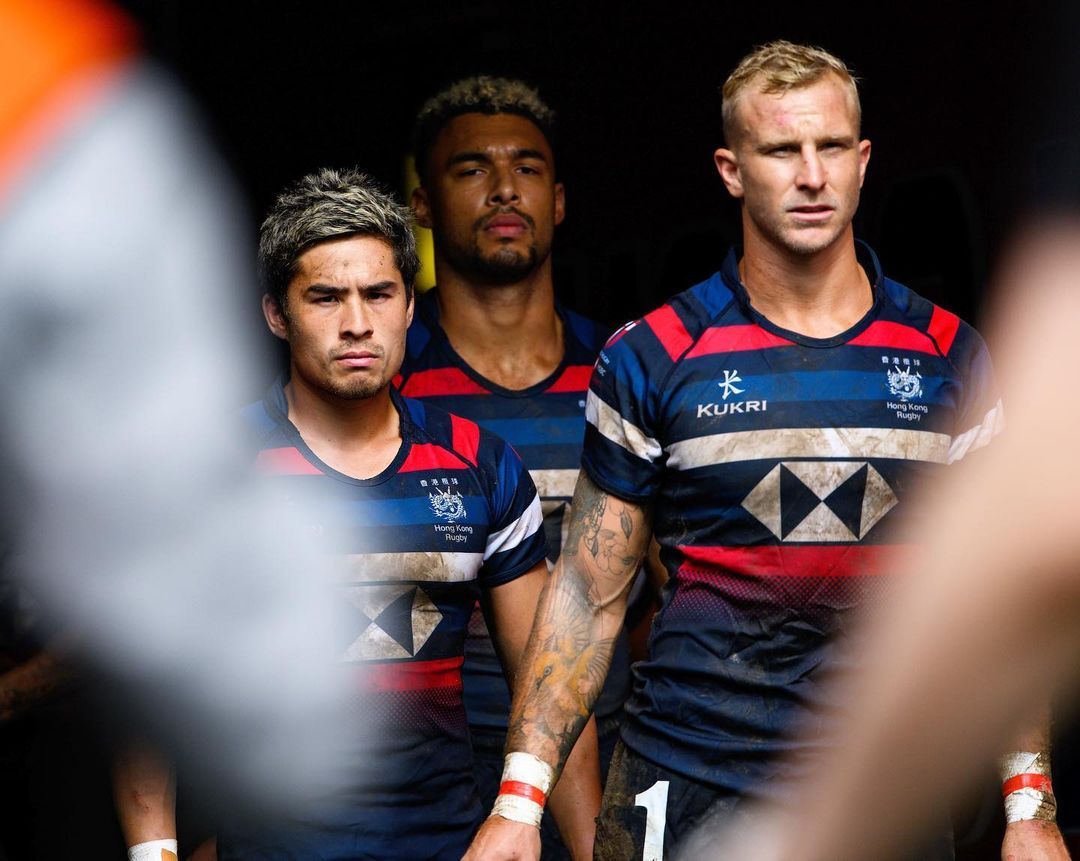
When asked about how he became captain of the Hong Kong Rugby Sevens team, Woodward jokes, “I think I was like just a bit of a loser and trained hard and wanted it more.” But his humble demeanor returns as quickly as his banterous side appeared. He goes on to describe his path towards his position, starting by playing a handful of tournaments where he didn't get on the field, instead holding bags and running water for the others.
He honed his sporting skills, being mindful of his strengths and shortcomings until he was good enough to play well enough off the bench and be a starter. It was from there that he unknowingly began developing qualities that would serve him later in his leadership position. “In rugby, you kinda just get on with it, and sort of like, a bit of grit and resilience, that was maybe what the coach saw in my personality,” he says. “And that’s kinda how I got into being captain.”
But Woodward admits that he still has leadership qualities that he continues to sharpen and fine-tune. “Having empathy for other people’s emotions and feelings and how they respond to certain things,” he reflects. “Taking a more individualistic approach towards leadership within the team enviroment.” He mentions that different people respond differently to comments and criticism. Another leadership quality that he actively works on is not comparing how he feels with other people, as well as being able to delegate within the team.
Woodward admits the high pressure that athletes can feel with training every single day, whether they may feel sore or have a bad night's sleep. He describes the persistence and grit that they must have to keep going. “They rock up anyways, and they put a brave face on, and they get on with it,” he says. “I think the pressure of having to try to be the best that you can be every single day would probably be quite demanding.”
When asked how a leader would support a teammate with low morale, he talks about how COVID was taxing on the athletes, with gyms and fields closing. “It’s having the maturity and self-awareness to try and pick up how other people are feeling,” he says. “And taking them out of a group setting and trying to establish a bit of a rapport. Sit down. Chat. … It's difficult in team environments and in traditional male culture. Sometimes people don't like forced, blunt questions. … You have to take that out of people in a bit more of a subtle way,” he says, acknowledging that every individual requires a different kind of attention.
Gratitude to the game
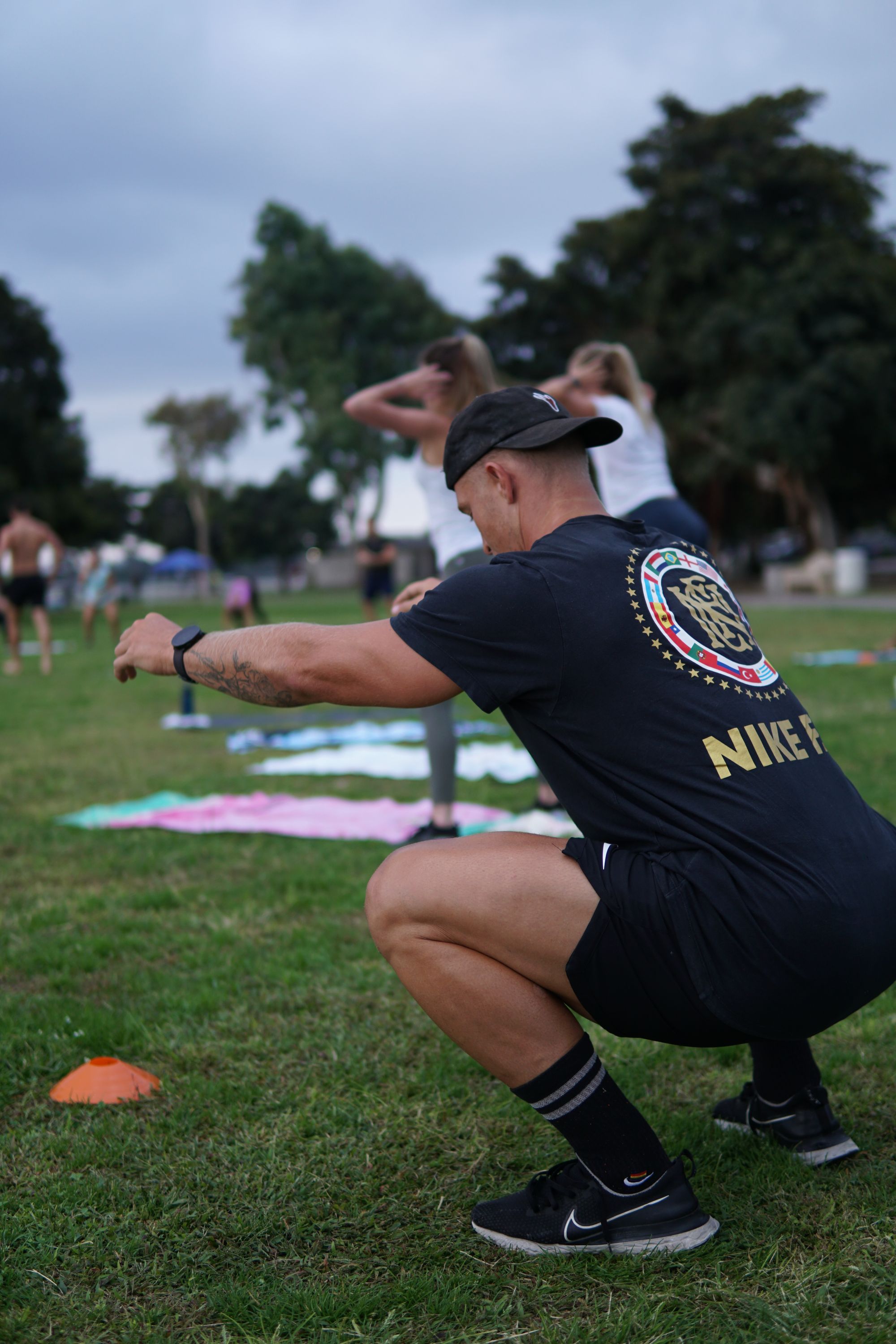
COVID was indeed a trying time for the players, as they battled the lack of open training grounds in Hong Kong, flying to play international games on little practice and quarantining for 21 days upon their return. “We weren’t training, but we had to go play these tournaments overseas,” Woodward recalls. “But I think, overall now, there was a positive to that struggle and how we’ve grown together as a team.” He laughs as he remembers doing a week of quarantine with three other teammates in a tiny hotel room, having installed a bike and a rowing machine to pass the time. His eyes light up as he talks about the experience.
“A big one is expressing the gratitude that you're flying around the world to play rugby. People, kids, would only dream of being able to do that. I know it sounds cliche,” he replies when asked how he keeps mentally, physically and emotionally fit. Max scratches his chin and smiles as he thinks about how his life has come to be, living the dream of being a professional athlete.
“It is a transient career,” he says. “It’s not going to be my life in a few years. … I hope that the other lads see it too – that what we do is pretty special.” He stresses how appreciating the life that they are living is a necessary part of powering through the highs and lows of their career and keeping mentally fit.
The Sevens
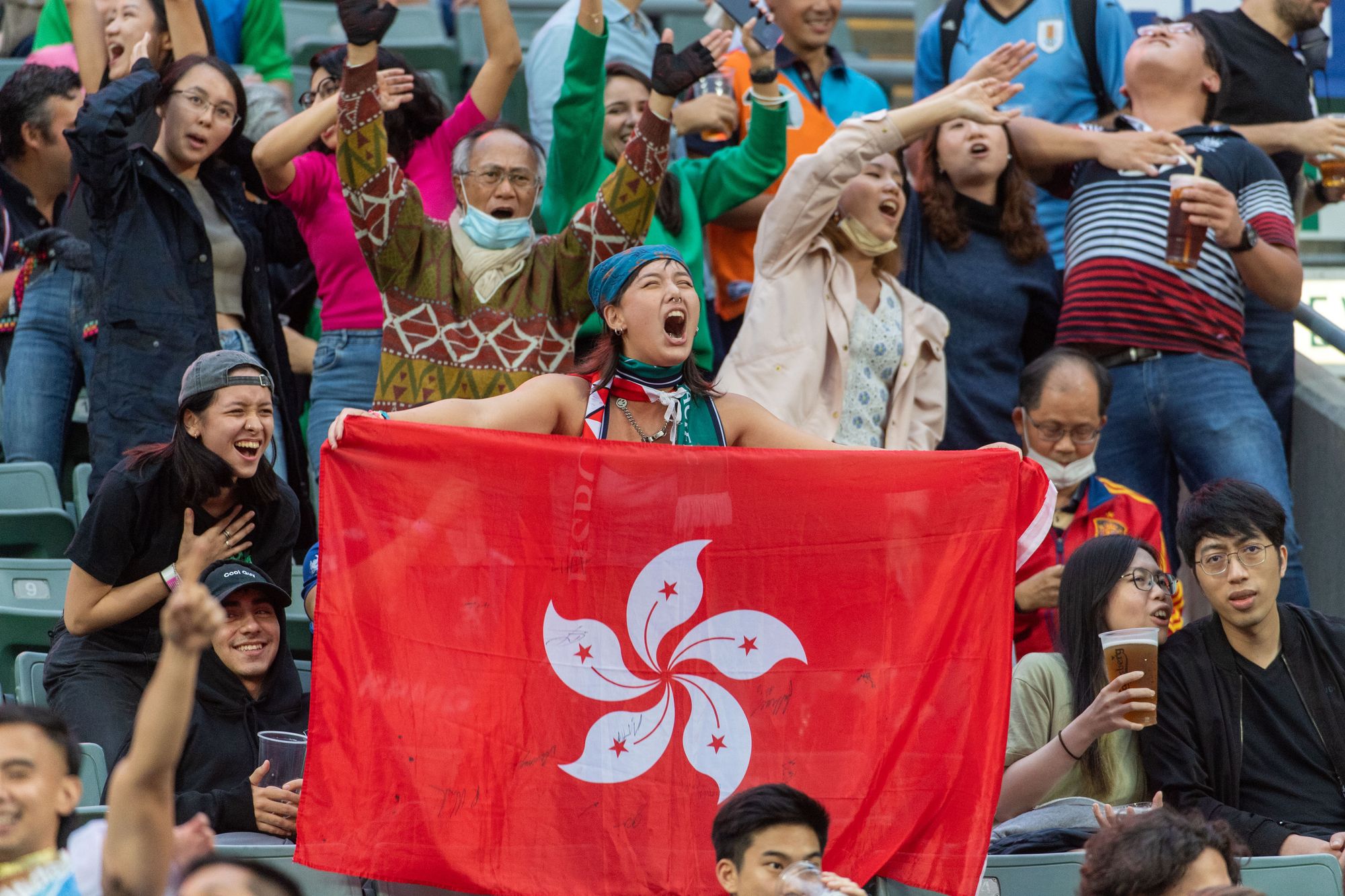
Woodward has played in five Sevens tournaments as of date, but he says his favorite by far was the one that just passed in November 2022. Why? Because of the travel restrictions of COVID, tickets were sold primarily to Hong Kong spectators. “I’ve never experienced anything like it,” he says. “Not just the players were relieved for an event like that. I think a lot of people in Hong Kong enjoyed the fact that there was, you know, a real return to normalcy.”
Crinkles form around Woodward’s eyes as he recalls the last Rugby Sevens event he played at. “I’ve never seen so many kids in Hong Kong shirts. I’ve never seen so many local Hong Kongers out watching the rugby,” he says. “You know, kids smiling, dancing, faces painted. And the noise was amazing. Like, it was really, really special.”
With years of experience running out onto the field, it is inevitable to wonder if the nerves still get to him. To that query, he responds, “The first few times I remember it was kind of a bit of a shock.” But over time, he’s eased into it, and his comfort with the crowd and the noise has changed. Now he says that when he runs onto the field, he just has a huge smile on his face as he recognizes just how unique the experience of the event is.
“It’s difficult to balance between focusing on the game and trying to take it in as well and being present,” he says. “‘Because sometimes you just zone out from anything apart from what you’re doing on the field.”
Bits and bobs on the side
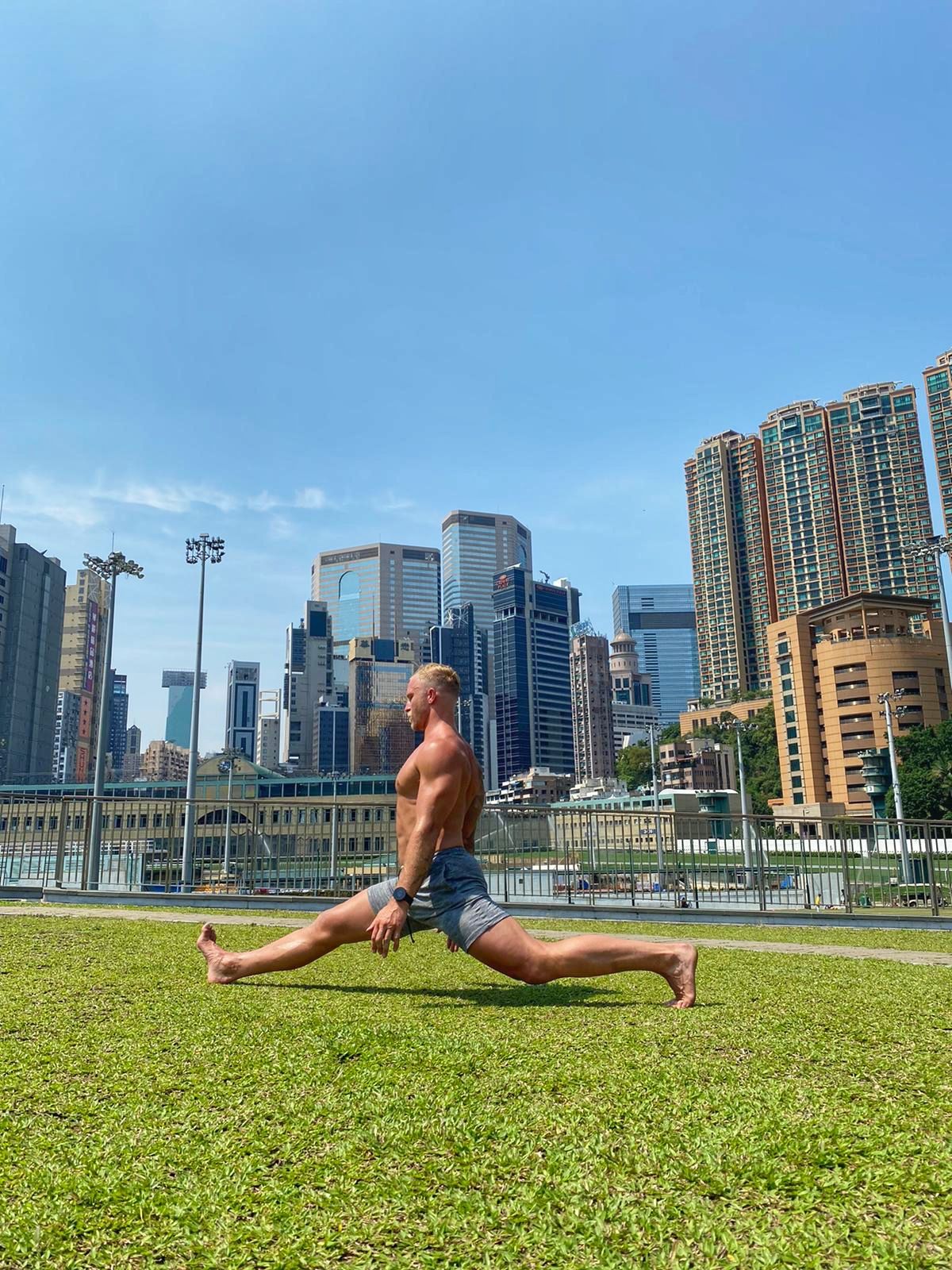
“It’s important for guys to have stuff outside of rugby,” says Woodward. For some of his teammates, it’s taking care of their families and kids. For others, it’s studying. For Woodward, it’s personal training and a gym called The Tin Shed.
Tin Shed started during COVID when he and a friend, Hugo Stiles, converted an old storage unit in Shek O. They refloored it, painted it and filled it with as much exercise equipment as the little unit could take. Woodward takes pride in how exercise can greatly affect mental health and therefore takes a lot of pride in having a small gym that he can manage and freely use. There is now a nice community that comes down to workout at the gym.
Soon to come into play for the Tin Shed is the coffee shop. He mentions that he and Stiles are both big fans of coffee. “The dream is to amalgamate them both and have coffees and training down there,” he says with a smile. Woodward carries on by enthusiastically telling us studies on how caffeine helps workouts, as well as how interactions after having caffeine tend to be more positive.
Some final advice
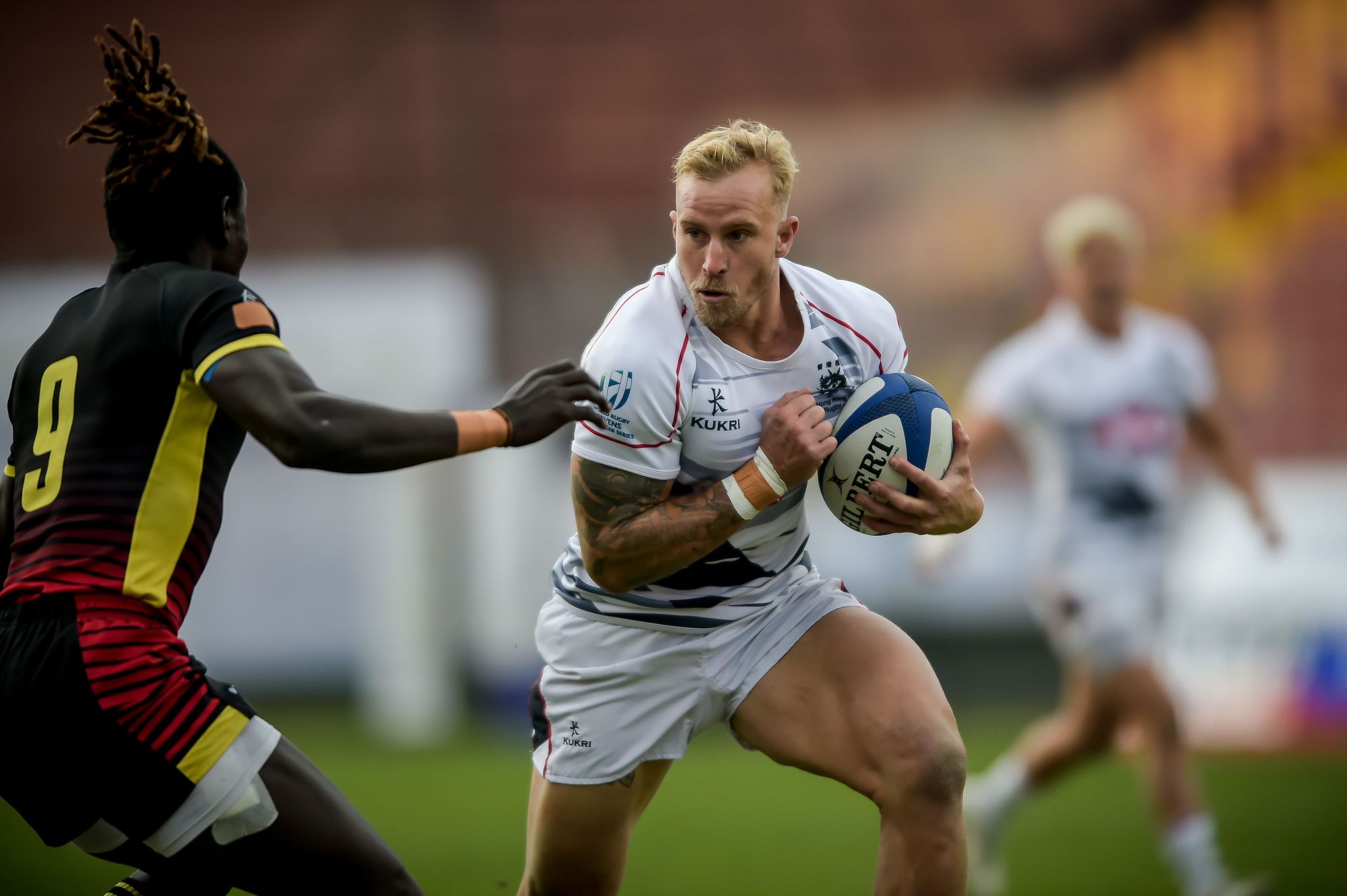
To round it all up, Woodward shares a message for aspiring future professionals out there. “Get good at working hard,” he says. “Because it's a transferable skill, whatever you're doing in your sport.” He backs the idea that much of sport is nurture much more than nature, stressing that if you put in the hours and hard work, a huge difference will be seen. Although he does back that genetics has a role in a person’s athletic ability, he feels that you can push those boundaries.
“Know it’s going to be tough,” he continues. “You gotta dig in; you gotta put in the hours. … You can never do enough micro-skills, little small practices when you’re a lot younger and don't need to worry too much about resting.
“Try and develop the self-awareness early to know what things you’re not good at,” he adds. “Ask people. Ask coaches. Have mentors. If you see someone in a position that you want to be in … ask for their advice.”

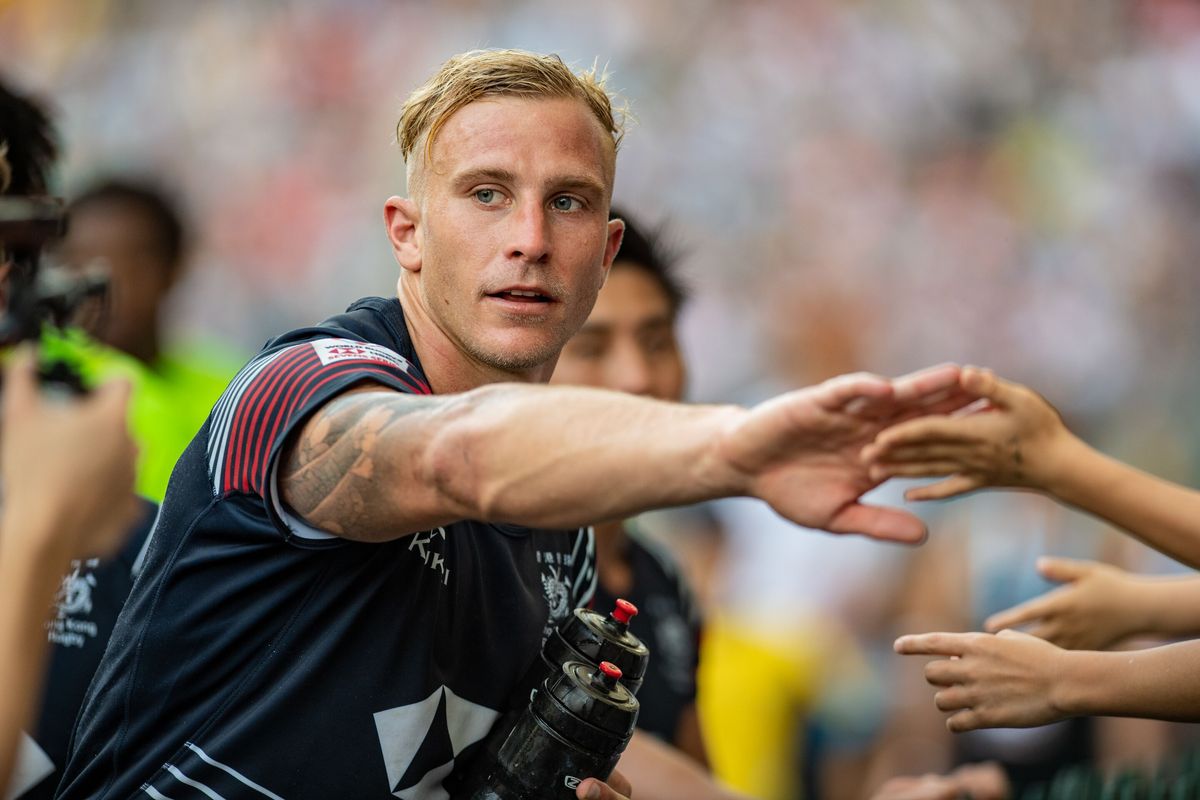



Comments ()